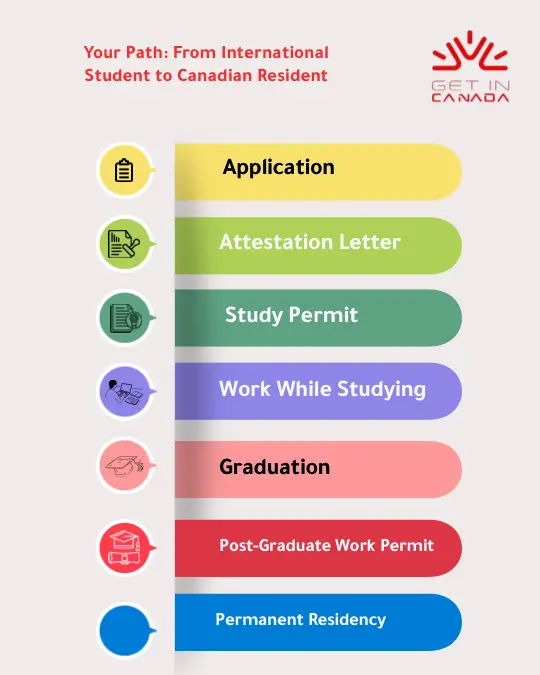Impact of Reduced International Student Numbers on Study Opportunities in Canada
1. Changing Landscape for International Students in Canada
The landscape of education for international students in Canada is shifting dramatically in 2025, especially with the introduction of the new 2025–2028 Immigration Plan. With policy changes tightening the flow of new students, applicants are finding the journey more competitive and strategically demanding. Whether you dream of academic excellence or plan long-term immigration, understanding Canada’s new reality under the plan is key. This year, the government is focusing on priority majors and stricter requirements to balance opportunity with economic need. As a result, students must adapt and rethink their approach to studying abroad. In this article, we reveal how these new rules and the Immigration Plan shape your prospects, and how making the right moves can keep your Canadian dream alive.
Why Is Canada Reducing International Student Numbers?
The main reasons for the cap on study permits are national housing pressures and workforce needs. By reducing numbers, the government can better allocate resources and support high-demand sectors.
- Pressure on housing and jobs is driving the change
- Preferred sectors get more student visa slots
Book Your Consultation Session →
2. The Impact on Student Opportunities
Recent changes mean increased competition. While the number of available study spots is reduced, high-performing students in key fields may see stronger opportunities.
How Have Your Chances Changed?
Getting a study permit is tougher for oversupplied fields, but applicants who prepare well and focus on high-demand majors still have strong opportunities.
- Attestation letters now required by provinces
- Universities introduce tougher admission standards
- Experience and language proficiency matter more

Does the Cap Favor Certain Students?
Those in preferred fields (engineering, IT, healthcare) gain an advantage. Students in low-demand or oversupplied majors (like humanities) see decreased chances.
| Field | Chance in 2025 | Notes |
|---|---|---|
| Engineering | Higher | Multiple programs, high demand |
| IT/Computer Science | Higher | Preferred in major provinces |
| Healthcare | Higher | Nursing, medical, allied health |
| Business Administration | Moderate | Focus on analytics/finance |
| Humanities/Arts | Lower | Least favored for PR pathways |
3. Does Canada’s Reduction in International Student Numbers Decrease Your Chances or Make Them Stronger?
With Canada capping international student permits, many applicants wonder if this new quota makes things harder or easier.
How Permit Reductions Affect Your Chances
Canada’s decision to reduce study permits means fewer spots and tougher standards for everyone. If you’re applying in oversupplied majors (like arts or general business), your odds are lower because competition is fiercer and schools are prioritizing top performers. Strong academic records and clear career goals matter more than ever.
On the positive side, the cap helps filter out weaker applicants and gives a clear benefit to those who are ready and qualified. In high-demand fields, with strong language skills and relevant experience, you are now even more likely to be selected.
Key impacts of permit reduction:
- Fewer overall study spots
- Intense competition
- Strong candidates stand out; weaker applicants are filtered out
- Government and schools focus on high-priority sectors (engineering, healthcare, IT)
- Proof of language skills and work experience increasingly required
What Are the Top Majors the Canadian Government Plans to Accept in 2025?
According to recent government statements and education sector analyses, Canada is prioritizing international students in majors that directly support its national development and labor shortages. The strongest and most favored fields for 2025 include:
- Engineering (all branches): infrastructure, technology, innovation projects
- Information Technology & Computer Science: powering digital growth
- Healthcare (nursing, pharmacy, medicine): population growth and shortages
- Business Analytics & Finance: supporting the economic ecosystem
- Environmental Science & Sustainability: green policies and climate goals
- Hospitality and Tourism: supporting pandemic recovery
Applicants to these majors who match language, financial, and provincial requirements are expected to have the best chances for study permit approval and future residency pathways.
Book Your Consultation Session →
4. Government Priority Majors & Future Directions
Canada’s focus is on specific specializations, including infrastructure, healthcare, and tech. Here’s why these majors are prioritized:
- Engineering: Drives innovation and economic expansion
- Information Technology: Supports Canada’s digital shift
- Healthcare: Fill gaps in medical staff and allied health
- Hospitality & Culinary Arts: Supports tourism and service sector growth
- Environmental Sciences: matches Canada’s sustainability goals
Priority Majors and Provincial Demand
| Major | BC (British Columbia) | Ontario | Quebec | Alberta | Atlantic Provinces |
|---|---|---|---|---|---|
| Engineering | Very High Priority | Very High Priority | High Priority | Very High Priority | High Priority |
| Info Technology | Very High Priority | Very High Priority | High Priority | High Priority | High Priority |
| Healthcare | High Priority | Very High Priority | High Priority | High Priority | Very High Priority |
| Business/Finance | High Priority | High Priority | High Priority | High Priority | High Priority |
| Environment | High Priority | High Priority | Very High Priority | High Priority | High Priority |
5. Application Requirements & Best Practices
New Canadian immigration policies now require international students to meet stricter application criteria and demonstrate genuine commitment to their studies and settlement.
Following these guidelines helps students boost their chances of acceptance and build a strong academic and immigration profile.
- Provincial Attestation Letters: Approval needed before federal application
- Proof of Financial Resources: Higher documentary standards
- Program Choice: Must match an in-demand field
Strengthening Your Academic Profile
To stand out, applicants should:
- Obtain reference letters from employers or institutions
- Build relevant experience
- Complete English/French language certifications
- Consider working with certified immigration consultants
6. Work While Studying: What Has Changed?
Students can now legally work up to 24 hours weekly off-campus, giving greater exposure to Canadian workforce environments.
- Some programs feature paid co-op work placements
- Real-world experience can improve PR prospects
Book Your Consultation Session →
7. Post-Graduation Pathways: From Study to Permanent Residency
Many students use their studies as a springboard to permanent residency. Canada’s new policies mean more emphasis on in-demand skills and provincial connections.
Express Entry & PR for International Graduates
- Express Entry now prioritizes graduates with Canadian work experience
- Provincial Nominee Programs (PNP) offer routes for students committed to living in smaller communities
8. Conclusion: Turning New Challenges into Stronger Opportunities
Navigating Canada’s university admissions is no longer just about grades—now, it’s about strategy. The shift in student number caps requires applicants to focus on sought-after skills and make their profiles shine. Consulting professionals, choosing top universities, and securing powerful endorsements are game-changers for your application. Remember: Competition means you must work smarter, not just harder. Select a major carefully, follow up with official documentation, and consider all details to optimize your chances. With informed preparation, ambitious students can harness new immigration rules as an opportunity—and turn dreams of studying in Canada into reality.











